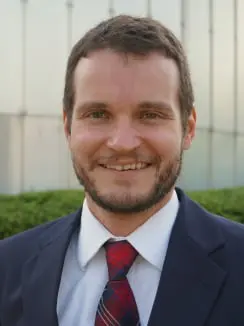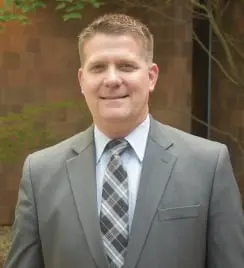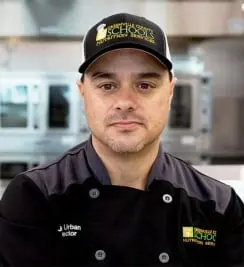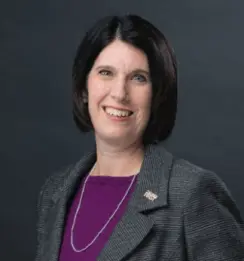 | 1.5 LU |
 | 1.5 LU |
Roper Mountain Science Center (RMSC), located in Greenville, South Carolina, is a one-of-a-kind facility that spans 62 acres and over 125,000 square feet of educational building space and is recognized nationally. It includes an indoor rainforest, planetarium, observatory with the 8th largest refracting telescope, and a living history farm; all owned by a public school system. Each year over 50,000 students visit RMSC for immersive experiences. Students from 24 South Carolina counties and 3 states regularly participate in activities at RMSC. Additionally, the Center serves more than 50,000 public visitors through a variety of engaging programs outside of school hours. In recent years, the RMSC has expanded to meet the needs of our community. In 2021, Greenville County Schools (GCS) opened the state-of-the-art Environmental Science and Sustainability building focused on students in grades 2-7. Here we provide a new and unique curriculum that is enhanced by dynamic exhibit spaces including Our Water Story and a Sustainable Future. At the same time, students and community members participating in RMSC activities needed a cafeteria/lunch option when on the Mountain. Given GCS students with disabilities working towards the SC Employability Credential would benefit from a training facility targeted specifically to their needs coupled with the labor demands in Greenville County’s food service/hospitality industry the creation of Connections Café at RMSC was a logical component within the Environmental Science and Sustainability building. Quarterly 6-9 students with disabilities receive direct hands-on training with GCS Food and Nutrition Services (FANS) staff that includes coursework for the ServSafe certification. The partnership between FANS and the district special education department has directly assisted students with the transition from school to work with a significant increase in students being employed with competitive/livable wages. In August of 2023, the Career and Technical Education (CTE) Innovation Center welcomed its inaugural class serving students with an interest in Aerospace, Automation and Robotics, Emerging Automotive Research, Clean Energy, and Cybersecurity. This facility was uniquely designed with the flexibility to incubate advanced CTE programming for a cycle of 3-5 years and launch those programs at our existing high schools and career centers. Subsequently, the center will launch the next wave of innovative courses. Come join our session to learn about the success of our many school, community, and facility partnerships!
Learning Objectives:

Michael has over 20 years of experience in informal education. During his tenure, Weeks has overseen substantial growth at Roper Mountain including a new Environmental Science Building, renovations on multiple existing structures, the competition of a 5-year strategic plan, and more. He is active in the community and serves on multiple boards including the Clemson Extension Advisory Council and Upstate STEM Collaborative Advisory Board.

Eric began his career as a Career and Technology educator as a Health Science teacher at Enoree Career Center. He developed strong programs in Sports Medicine, Emergency Response, and Pharmacy Tech. He has served in a variety of educational leadership roles in Greenville County Schools including as a middle and high school principal. Eric’s leadership experience at the secondary level as well as his knowledge of CTE programs will be beneficial in providing meaningful career readiness opportunities to the students of Greenville County.

Joe is the Director of Food and Nutrition Services for the Greenville County Schools in Greenville, South Carolina, the largest school district in South Carolina, and the 44th largest in the United States with approximately 78,000 enrolled students. Joe leads a team of 750 foodservice professionals that serve over 15 million nutritious school meals annually out of 106 schools and special centers throughout Greenville County. Joe has worked in the K-12 foodservice industry since 2007 and has over 35 years of diverse foodservice management experience in both the private and public sectors.

Traci holds bachelor’s and master’s degrees in Communication Disorders from Marshall University. She has 28 years of experience in special education that includes working with the South Carolina public school system and the private sector. Traci is currently responsible for the programming for over 12,000 students with disabilities in the School District of Greenville County. She has completed the Education Policy Fellowship Program through the Institute for Educational Leadership, is a graduate of the Furman Women’s Leadership Institute as well as The Riley Institute’s award-winning Diversity Leader Initiative. Traci is a member of many professional organizations and is currently serving as the past president the South Carolina Association for the Supervision and Curriculum Development.
This track addresses the Response to real-world events and experiences that impact our daily life and our ability to function normally and be productive. The response to these occurrences is reflected in the learning environments we create and leads to the question – how can schools respond to real-world crises in a way that supports the well-being of occupants and our students' learning journey? How do we respond with approaches and strategies that may be used to balance the inability and lack of needed financial resources to address deficiencies within our learning environments’ infrastructure? Topics expand on the Art approach to the theme, but also include Science in the form of findings and outcomes through case studies and examples of successful responses to real-world conditions and events such as the COVID-19 pandemic, climate change, declining student enrollment, economics, equity, and other topics.
Primary Core Competency
Educational Visioning: Exhibits an understanding of best and next practices related to educational leadership, programming, teaching, learning, planning and facility design. Establishes credibility with educators, community members and design professionals while conceiving and leading a community-based visioning process. Demonstrates the ability to articulate the impact of learning environments on teaching and learning and uses that ability to facilitate a dialogue that uncovers the unique needs and long-range goals of an educational institution and its stakeholders – translating that into an actionable written/graphic program of requirements for the design practitioner.